
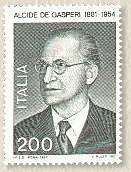
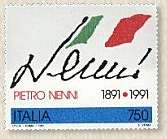



At this initial meeting the following were present: Ivanoe Bonomi, ex-Prime Minister before Mussolini's appointment, the Christian-Democrat Alcide De Gasperi, the Liberal Alessandro Casati, the Socialist Pietro Nenni, the Communist Mauro Scocimarro, and Ugo La Malfa on behalf of the Action Party. In Committee they were joined by Ruini, on behalf of Democracy of the Work, and Bergamini, on behalf of Liberal Reconstruction.
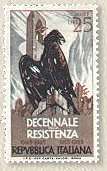
Those present approved a declaration which, among other things, affirmed that "... the anti-fascist parties join in a National Liberation Committee to call up the Italian people to join in the fight with the Resistance, with the goal to restore Italy to the place which is due to it in the assembly of free nations". Thus came into being the RESISTANCE.

Actually, during the twenty years of Mussolini's Government, the Resistance, especially through the clandestine press, never did stop, although it was managed in a very limited way. Certainly it became more active as soon as there were the first inklings that the war was lost. Direct contacts were made with the exiles to encourage them to return. The experience of the fighters in the International Brigades during the Spanish Civil War proved useful before the fall of Mussolini's Government (July 25, 1943).
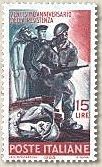
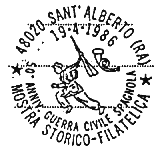
After September 8, 1943, the need to reorganize the fighters arose. The disbanded soldiers were the first to found resistance groups whose commanders were officers of the dissolved army. The former exiles and the political survivors, set free from jails and from internment after July 25, joined them. They became the first "bands", so-called because the Nazis considered the fighters in these groups to be "bandits" or "rebels".
|
|
 |
 |
|
 |
 |